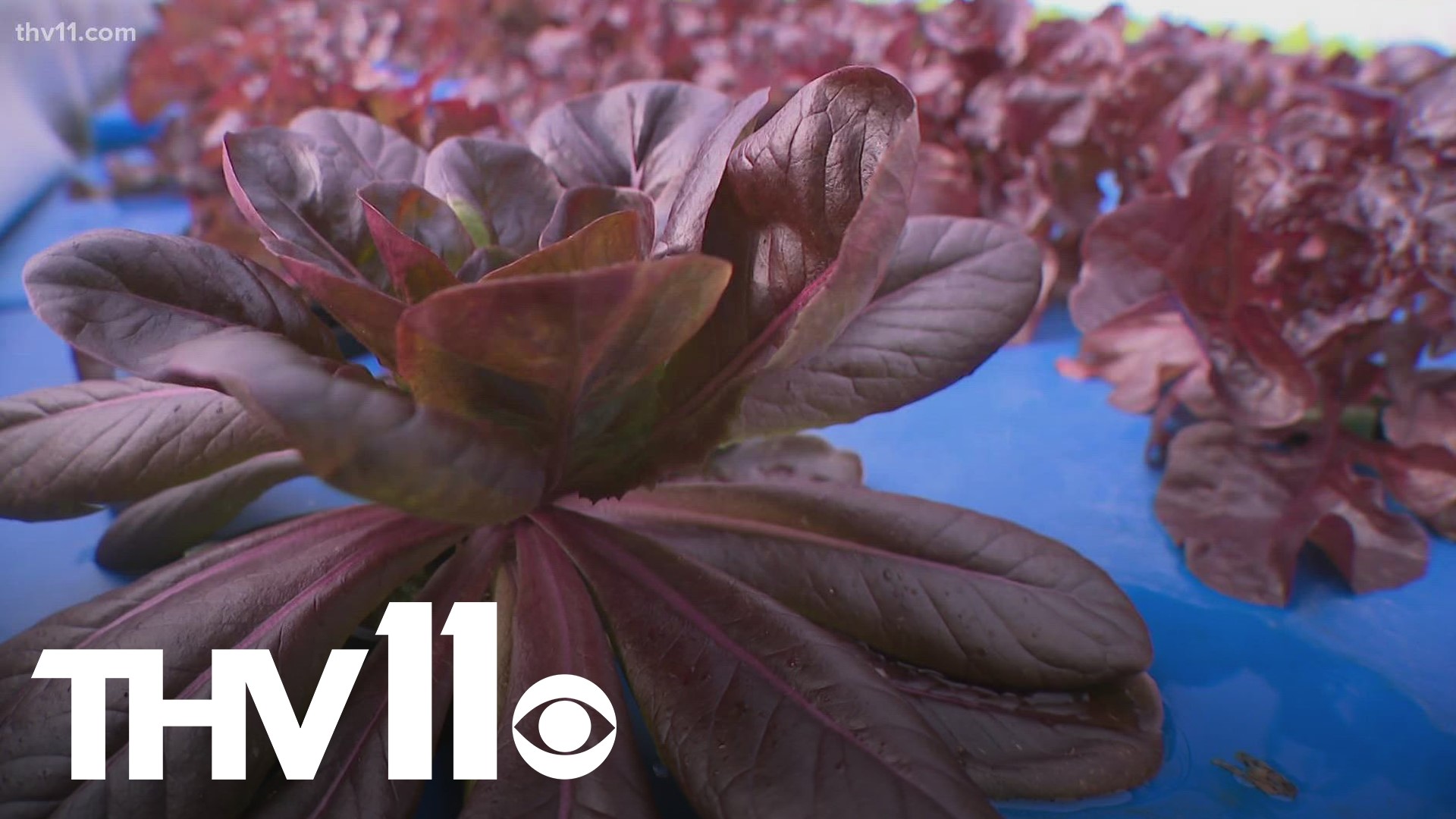LITTLE ROCK, Ark. — Imagine farming almost anywhere and without soil— that's exactly what one Central Arkansas nursery has been focusing on.
Hydroponic farming is a technique of growing that actually uses a water-based nutrient solution instead of soil.
A plant nursery in Little Rock, known as The Nurserie, has been working not only to grow produce but to grow the industry as a whole.
"It opens up boundaries," Nurserie Owner, Rob Galloway, said. "You're not limited to your square footage or your real estate. We take it indoors."
The Nurserie is also home to one of the only hydroponic farms in the state, and Galloway explained that growing plants using only water and no soil has many benefits.
"We use like 90% less water," Galloway said. "We can grow in areas where it's not traditional."
Hydroponic farming also allows for the adjustment of the speed at which plants grow.
"Introducing more nutrients to them can get them to grow faster, and slower water rates can get them to help the plant as well," Galloway said.
For example, lettuce can grow faster without soil.
Currently, The Nurserie can grow 800 heads of lettuce a week, but once the vertical farm is up and running, Galloway said that count should increase to 5,000.
"The biggest thing that we've accomplished so far with the hydroponic farm is just really getting to the point where we can scale and produce a lot of food," Galloway said.
Galloway hopes more people will do the same as he prepares to start selling a rack to expand vertical hydroponic farming.
"We have a patent on the spacers that go inside here too," Galloway said. "We can adjust the growth points, they don't have to stay, this is seven-and-a-half-inch spacing that we have here, and so we can adjust it to nine or two or whatever we need to do."
Galloway has been in talks with multiple schools about teaching hydroponic farming to get more young people interested.
"There's already been a lot of good traction with it," Galloway said. "We have one in Robinson right now. We have Pinnacle View Middle School looking to do the same thing, but working with the teachers and working with the programs from the FFA, the stem in the east, it's important."
The Nurserie Manager Bo Bennett oversees sales and said it's a more affordable way to buy fresh produce.
"What we're doing here is we're able to grow on a small scale, something that's comparable to what they would be producing in California," Bennett said. "This is running under $2 a head for wholesale. We retail for 250 here in the shop."
It goes straight from the table to the store shelves.
"We literally harvest it the day of, the day before," Bennett said. "We're just pulling it up like that you can see the roots. They're exposed growing directly in a water medium in a net pot with a Rockwool cube."
Bennett also sells produce to about 10 local restaurants.
"I match any price that they would be paying for a big box store for food to reach a food distributor," Bennett said. "I try to match that price point to get their business."
Bennett and Galloway said one of their biggest goals is to help reduce food insecurity through hydroponic farming. They said the racking systems could benefit churches, nonprofits, school districts, and even people's residential homes.
"Hydroponics brings the food closer to the people," Galloway said. "It brings access to people that didn't have it before. So, urban farming is really big. We want to produce as much food as we can. We want to equip as many farmers as we can to farm, we're going to help them, and so if you want to farm, you can come and talk to us. We'll help you."
Galloway said he's also talking to state leaders about plans to expand hydroponic farming.
He also hopes to get his planter rack on big box store shelves.

